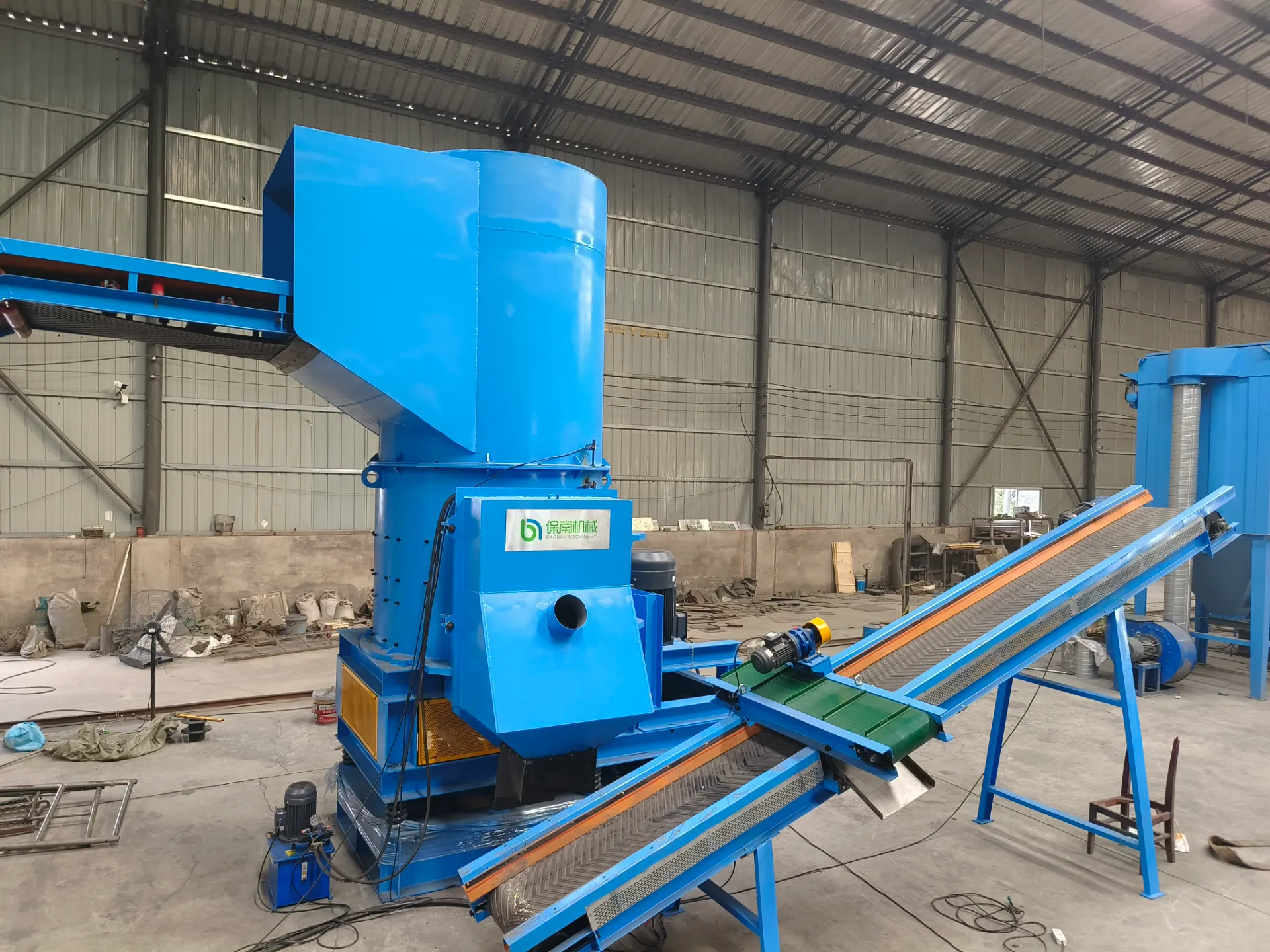

Nov . 11, 2024 15:51 ତାଲିକାକୁ ଫେରନ୍ତୁ |
As the world increasingly shifts towards sustainable practices, the concept of the circular economy has gained significant attention. In this model, resources are kept in use for as long as possible, maximizing their value while minimizing waste. Metal shredders play a vital role in facilitating this transition by enabling effective recycling and resource recovery. This article explores the importance of metal shredders in the circular economy, highlighting their contributions to sustainability and resource efficiency.

The circular economy is a transformative approach that contrasts with the traditional linear model of "take, make, dispose." In a circular economy, products are designed for longevity, reuse, and recycling. This model not only reduces waste but also conserves natural resources, decreases greenhouse gas emissions, and promotes economic growth through sustainable practices. By closing the loop on product lifecycles, the circular economy aims to create a more resilient and sustainable future.
Metal shredder machine are crucial in the recycling process, particularly for processing scrap metal and end-of-life products. These machines break down metal waste into smaller, manageable pieces, making it easier to sort and process for recycling. By effectively shredding metals, these machines enable the recovery of valuable materials, reducing the need for virgin resources and minimizing environmental impact.
The shredding process not only increases the surface area of materials, making them easier to melt and recycle, but it also ensures that hazardous components are safely handled. For example, many electronic devices contain metals that can be harmful if not disposed of properly. Metal shredders help mitigate these risks by ensuring that these materials are processed in a controlled and environmentally friendly manner.
One of the key benefits of metal crusher machine in the circular economy is their ability to enhance resource recovery. By breaking down metal waste into smaller particles, shredders facilitate the separation of different metal types, such as aluminum, copper, and steel. This separation is critical for maximizing the value of recycled materials and ensuring they can be reintroduced into the production cycle.
Modern shredding technologies, such as magnetic and eddy current separation systems, further optimize this process. These advanced systems efficiently recover valuable metals from mixed waste streams, contributing to higher recycling rates and reducing the volume of waste sent to landfills. As a result, metal shredders not only promote recycling but also support the development of a sustainable supply chain for metal production.
The environmental benefits of metal shredders extend beyond resource recovery. By recycling metals, the need for mining and extracting virgin materials is significantly reduced. This reduction leads to lower energy consumption, decreased greenhouse gas emissions, and a diminished ecological footprint. For instance, recycling aluminum can save up to 95% of the energy required to produce new aluminum from raw materials.
Moreover, metal shredders play a crucial role in reducing waste generation. As more metals are recycled and reintroduced into the production cycle, the volume of waste that ends up in landfills decreases. This aligns with the principles of the circular economy, where waste is minimized and resources are kept in circulation.
In addition to environmental benefits, metal shredders contribute to the economic viability of communities. Recycling operations create jobs and stimulate local economies by providing employment opportunities in collection, processing, and distribution. As the demand for recycled metals continues to grow, the role of metal shredders in supporting local industries becomes increasingly important.
Moreover, the circular economy fosters innovation and entrepreneurship. Companies that specialize in metal shredding and recycling are well-positioned to develop new technologies and services that enhance efficiency and sustainability. This innovation not only benefits the recycling industry but also contributes to a more resilient economy.
While metal shredders play a crucial role in the circular economy, challenges remain. One significant hurdle is the contamination of metal waste streams, which can hinder the recycling process and reduce the quality of recovered materials. Proper sorting and preprocessing of materials are essential to address this issue, and advancements in technology can help improve these processes.
Additionally, regulatory frameworks and market dynamics can impact the metal recycling industry. Establishing supportive policies that promote recycling and sustainable practices is essential for maximizing the benefits of metal shredders in the circular economy.
ତାଜା ଖବର
Troubleshooting Common Eddy Separator Problems
ସମ୍ବାଦJul.04,2025
The Role of Metal Recycling Plants in Circular Economy
ସମ୍ବାଦJul.04,2025
The Impact of Recycling Line Pickers on Waste Management Costs
ସମ୍ବାଦJul.04,2025
Safety Features Every Metal Shredder Should Have
ସମ୍ବାଦJul.04,2025
How Industrial Shredders Improve Waste Management Systems
ସମ୍ବାଦJul.04,2025
How Cable Granulators Contribute to Sustainable Recycling
ସମ୍ବାଦJul.04,2025